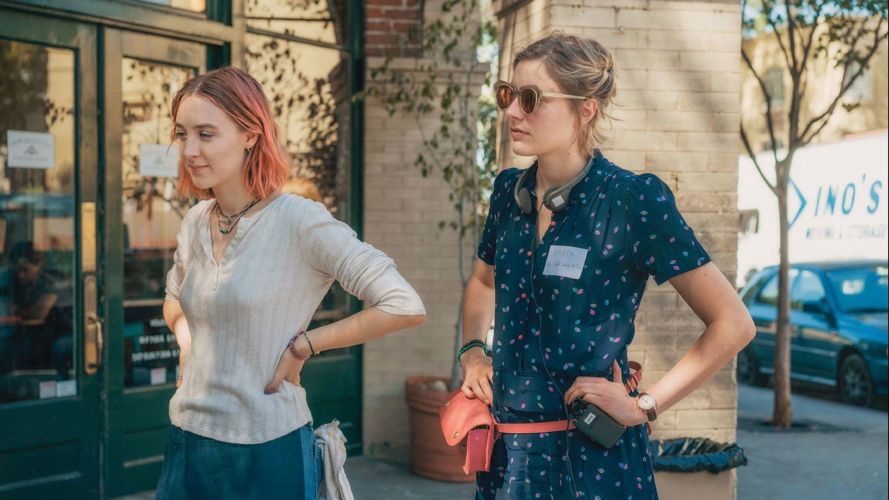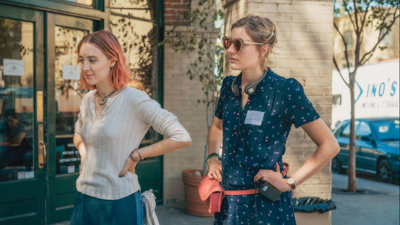
Complexity is one of the benchmarks by which we often measure the fictional characters we observe. There are exceptions, but generally, the worst thing to be in cinema or literature is boring or predictable. Christine McPherson — but please, call her Lady Bird — is many things, but she is never boring. A senior at a Catholic high school, she’s gripped by pre-college anxiety, maintaining stable friendships, the theater and perhaps finding a dreamy young fellow or two. And Saoirse Ronan (Hanna, Loving Vincent, Brooklyn) gets all of that across without ever becoming a typical movie teen. That kind of shorthand works for some films, particularly the ones that don’t really care about younger viewers. But Lady Bird cares about its characters and its audience. It feels like a hopelessly uncool MOR radio hit tucked away on the back end of a mix CD someone made for you (in keeping with the film’s 2003 setting). It’s an emotional anchor of a film, and it may save lives with its wit and kindness — a delicious pastry made out of security.
Writer/director Greta Gerwig is an incredibly prolific actress, and she’s a great talent on screen (The House of the Devil, Greenberg and 20th Century Women in particular). But she’s also a perceptive and empathetic screenwriter, and she has a gift for creating incredible characters. Marion, Christine’s mother, walks a tonal tightrope between cruelty and pragmatism that could careen into caricature or cliché without a steady hand. As played by national treasure Laurie Metcalf, Marion is never evil or hateful, and she is always alive and in the moment. She and Ronan are so good together that by the end of the film, you simply accept them as mother and daughter. It’s as if there are years and years of daily interaction in play, and it’s nearly unsettling how real they feel — and how funny they are, despite that razor-sharp ever-lurking tension.
Leaving aside its status as a future Mother’s Day rite of passage, it is right and fair to put Lady Bird in the company of high school classics like Fast Times at Ridgemont High, Clueless and Mean Girls. It’s as funny as any of them, and it has that pleasant rewatchability that bodes well for it to become an enduringly beloved film of the future. It’s also an honest film about class differences, not something usually focused on in American cinema, unless as something to overcome. There’s a frankness about money and social mobility that feels revolutionary just by existing, and that matter-of-factness is extended to the way Christine dates and how she treats her friends. She’s never malicious, but uncertainty has left her prone to occasional fits of capriciousness. She covers a continuum of boyfriends that will resonate with anyone, and she fixes (or tries to fix) a good two-thirds of what she breaks.
This film’s portrayal of the high school musical-theater enthusiast is spot-on — never condescending or slapdash, and Gerwig understands how to portray how inexperienced lives express drama through creating it on their own terms. But Lady Bird goes further, and shows how the fickle paths of the young disconnect from the expected. There have been a lot of films about what the theater means to someone stumbling to find a means of expression (2003’s Camp does this very well), but very few demonstrate the way that inspiration turns the emotional gears, and how hopes and dreams shift in the emotional Play-Doh Fun Factory of High School. How we grow away from our dreams is usually a theme found in midlife-crisis art, but Gerwig and Ronan have crafted a character that is going to let a lot of disaffected theater kids find the words to get a grip on their protean emotions.
Much of the film’s first act is tied to the school’s production of Merrily We Roll Along, the Stephen Sondheim musical played in temporal reverse, and there is always a palpable sense of the importance of all these little moments that slip by — until remembered far, far down the road.
Email arts@nashvillescene.com







